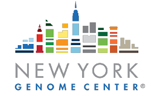Submitted by ja607 on
| Title | Community-based recruitment and exome sequencing indicates high diagnostic yield in adults with intellectual disability. |
| Publication Type | Journal Article |
| Year of Publication | 2020 |
| Authors | Sabo, A, Murdock, D, Dugan, S, Meng, Q, Gingras, M-C, Hu, J, Muzny, D, Gibbs, R |
| Journal | Mol Genet Genomic Med |
| Volume | 8 |
| Issue | 10 |
| Pagination | e1439 |
| Date Published | 2020 10 |
| ISSN | 2324-9269 |
| Keywords | Adult, Female, Genetic Testing, Humans, Independent Living, Intellectual Disability, Male, Mediator Complex, Membrane Proteins, Nuclear Proteins, Patient Selection, Sensitivity and Specificity, Tumor Suppressor Proteins, Whole Exome Sequencing |
| Abstract | BACKGROUND: Establishing a genetic diagnosis for individuals with intellectual disability (ID) benefits patients and their families as it may inform the prognosis, lead to appropriate therapy, and facilitate access to medical and supportive services. Exome sequencing has been successfully applied in a diagnostic setting, but most clinical exome referrals are pediatric patients, with many adults with ID lacking a comprehensive genetic evaluation. METHODS: Our unique recruitment strategy involved partnering with service and education providers for individuals with ID. We performed exome sequencing and analysis, and clinical variant interpretation for each recruited family. RESULTS: All five families enrolled in the study opted-in for the return of genetic results. In three out of five families exome sequencing analysis identified pathogenic or likely pathogenic variants in KANSL1, TUSC3, and MED13L genes. Families discussed the results and any potential medical follow-up in an appointment with a board certified clinical geneticist. CONCLUSION: Our study suggests high yield of exome sequencing as a diagnostic tool in adult patients with ID who have not undergone comprehensive sequencing-based genetic testing. Research studies including an option of return of results through a genetic clinic could help minimize the disparity in exome diagnostic testing between pediatric and adult patients with ID. |
| DOI | 10.1002/mgg3.1439 |
| Alternate Journal | Mol Genet Genomic Med |
| PubMed ID | 32767738 |
| PubMed Central ID | PMC7549560 |
| Grant List | UM1 HG008898 / HG / NHGRI NIH HHS / United States |




